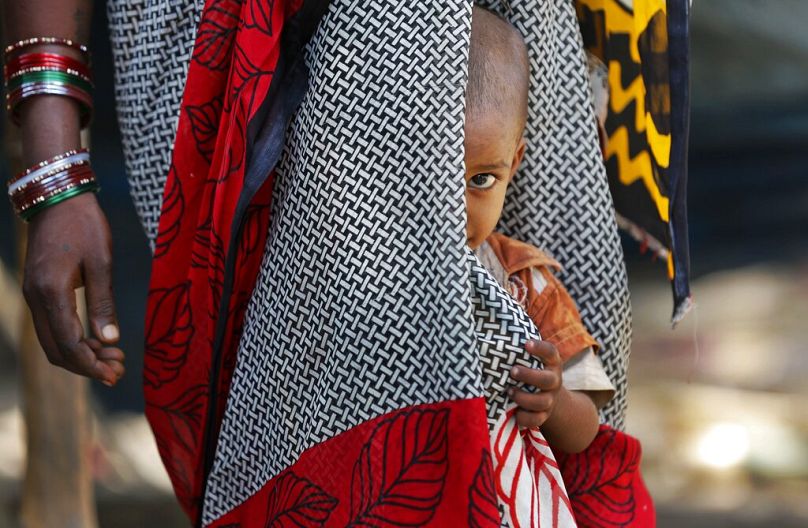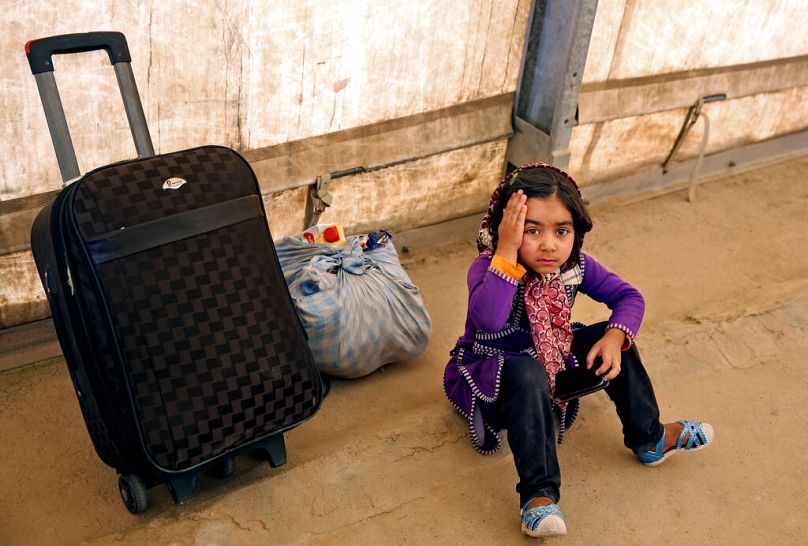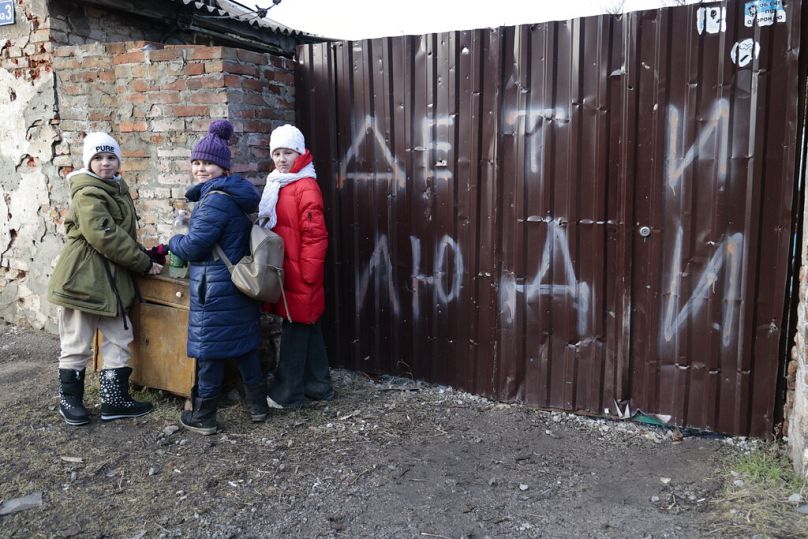Today, three-quarters of the world’s children — 1.77 billion — lack access to critical social protection, Natalia Winder-Rossi and Shahra Razavi write.
For millions of children around the world, child benefits can mean the difference between a healthy, happy life shielded from crises and one punctuated by ill health, stress and unrealised potential.
For some, it can be the difference between life and death. Yet today, three-quarters of the world’s children — 1.77 billion — lack access to this critical social protection benefit.
Raising children without child benefits can have life-long implications for their health and well-being, increasing the risk of poverty, disease, missed education, poor nutrition, and harmful practices such as child marriage and child labour.
Globally, around 356 million children live in extreme poverty — on less than $1.90 (€1.75) a day — double the number of adults. A billion children exist in dire living conditions and suffer multiple deprivations, including no access to education, health, nutrition, housing, sanitation or water.
Without urgent action to provide child benefits for all children and decent work for their caregivers, these numbers will only increase.
Child benefits help the economy, too
These benefits play a particularly critical role during the earliest years of a child’s development when young minds and bodies are forming and developing.
Neglecting to ensure children have sufficient support in these early years is tantamount to allowing the green shoots of human development to wither rather than flourish.
Aside from being every child’s right, child benefits — along with other social protection benefits — can stabilise and dynamise entire economies and societies in times of economic or social strife.
During the COVID-19 pandemic, for example, nearly every government in the world either rapidly adapted existing schemes or introduced new benefits to support children and their families.
In the US, child poverty was halved almost overnight as a result of the government expanding its child benefit policies to all families.
Similar outcomes were seen elsewhere, yet most of these gains have since been lost as programmes were cut, reversed or deprioritised.
The number of children lacking access to benefits is on the rise
Worryingly, the number of children not covered by any child benefits worldwide is increasing.
According to the ILO and UNICEF’s latest report on social protection for children, the number of children without child benefits increased by 50 million children in recent years.
Progress has stalled in most regions, and coverage rates remain especially low in Africa, the Arab states, and Asia and the Pacific, where only 12.6%, 15.4% and 18% of children, respectively, are protected by such benefits.
While the lack of child benefits is most acute in low-income countries, vulnerable children in high- and middle-income countries, such as children in institutions, ethnic minorities, and those displaced by conflict, are also missing out.
Despite these troubling figures, we know what works for children, and some countries are leading the way.
Georgia has recently increased the number of children covered by its main child benefit as well as the amount paid, while the Republic of Korea expanded the age range of its child benefit covered from ages 0–6 years to 0–8 years.
South Africa now pays a 150% higher value child benefit to orphaned children, and Mozambique has introduced a new child benefit for 0–2 years in regions where children are especially vulnerable.
In the European Union, child benefits reduce the risk of poverty in the child population by as much as 41%.
A change in mindset is desperately needed
While impressive, 1 in 4 children in the EU is still at risk of poverty and social exclusion due to a combination of inadequate benefit levels in some contexts and underinvestment in services for caregivers.
In 2022, the EU recognised this shortfall and established the European Child Guarantee, which aims to prevent and combat child poverty and social exclusion.
Just recently, Italy, Lithuania, Montenegro and Poland expanded their child benefits to all children.
All of this represents progress and should act as our catalyst to redouble efforts.
The way forward requires a change in narrative and policy mindset.
Social protection, consisting of child benefits and benefits critical for primary caregivers — such as unemployment, sickness, maternity, disability, pensions, and access to health care — are not only vital for addressing extreme poverty.
They are, in fact, key to supporting children and families to address their everyday needs, enhance economic capacity, reduce inequalities, build resilience and enable inclusive recovery from setbacks.
In essence, this is inexcusable
We must start providing child benefits to protect all children and as a principal way to connect families to systems of health and social services, including free or affordable high-quality childcare.
This will promote human capabilities and facilitate access to decent work for primary caregivers of children.
To better protect children, we must also ensure children’s primary caregivers have access to adequate working-age benefits.
Global development is built on the progress of the upcoming generation. The number of children currently lacking access to child benefits is simply inexcusable.
They cannot wait any longer. They need child benefits now.
Natalia Winder-Rossi serves as Director of Social Policy and Social Protection at UNICEF. Shahra Razavi is the Director of the Social Protection Department at the International Labour Organisation (ILO).
At Euronews, we believe all views matter. Contact us at view@euronews.com to send pitches or submissions and be part of the conversation.















